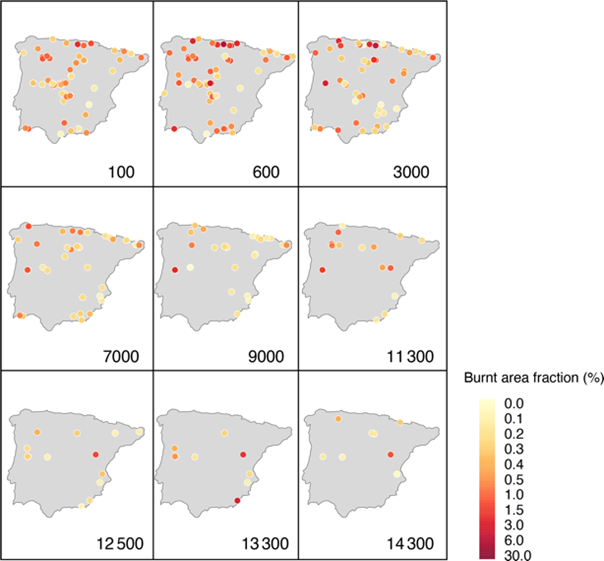Natalie Sanders writes: How do we disentangle extreme fire events resulting from climate change with natural wildfire regimes? And how might we model the interaction of climate and ecosystem properties,…Read More >
fire regimes
A novel method for using pollen records to reconstruct historic fire regimes – By Natalie Sanders and Yicheng Shen
The Iberian Peninsula, home to Mediterranean beaches and mountains, pine trees and paella, sangria and siestas. But this southwestern region of Europe, mostly comprised of Portugal and Spain, is also…Read More >
Furthering our understanding of the global patterns of burnt area, fire size and fire intensity – By Olivia Haas and Natalie Sanders
Wildfires are a fundamental ecological process, but studying wildfire patterns and properties at a global scale is challenging. Understanding wildfire processes however, is essential to fully describe global vegetation distribution…Read More >


